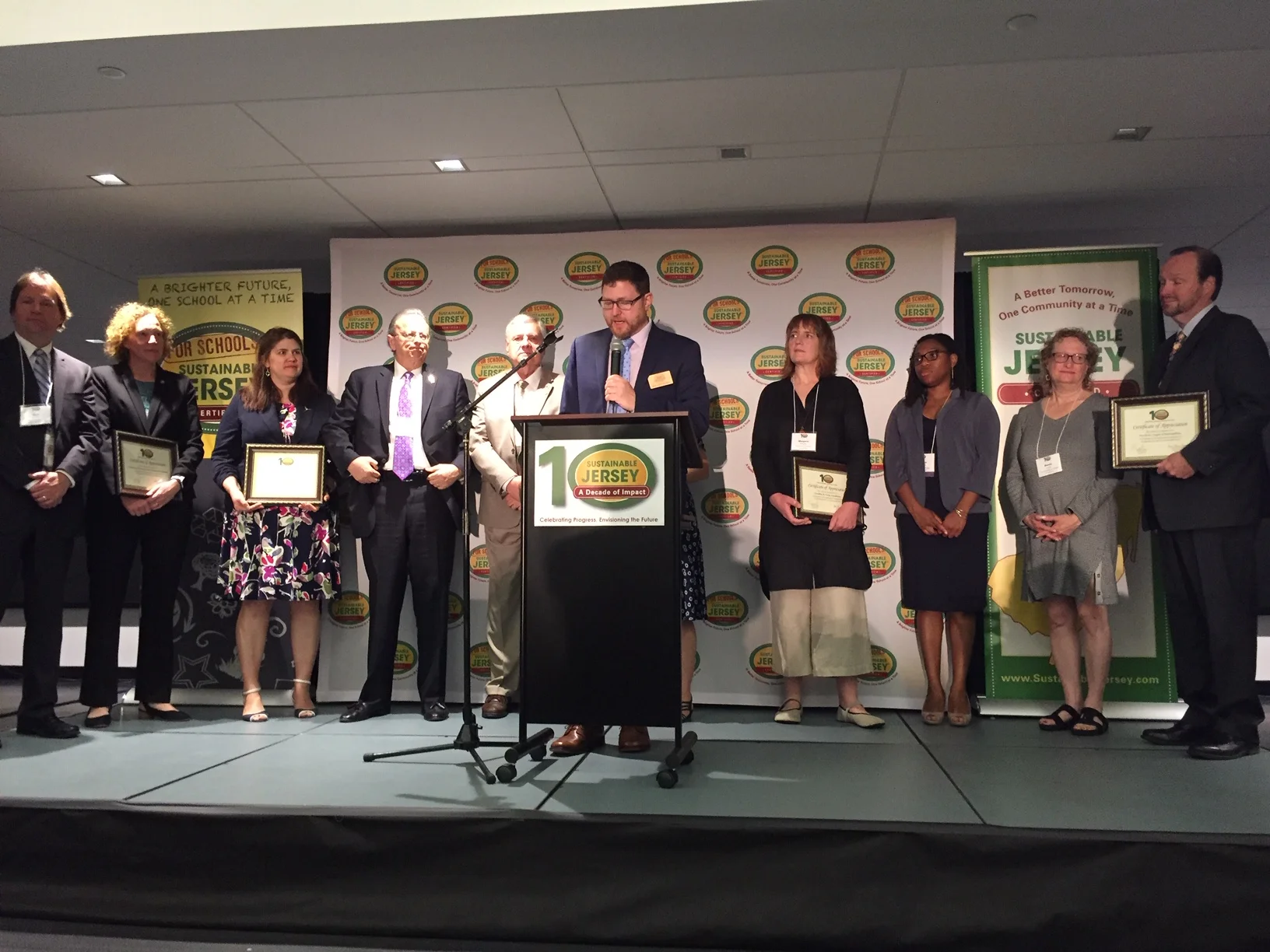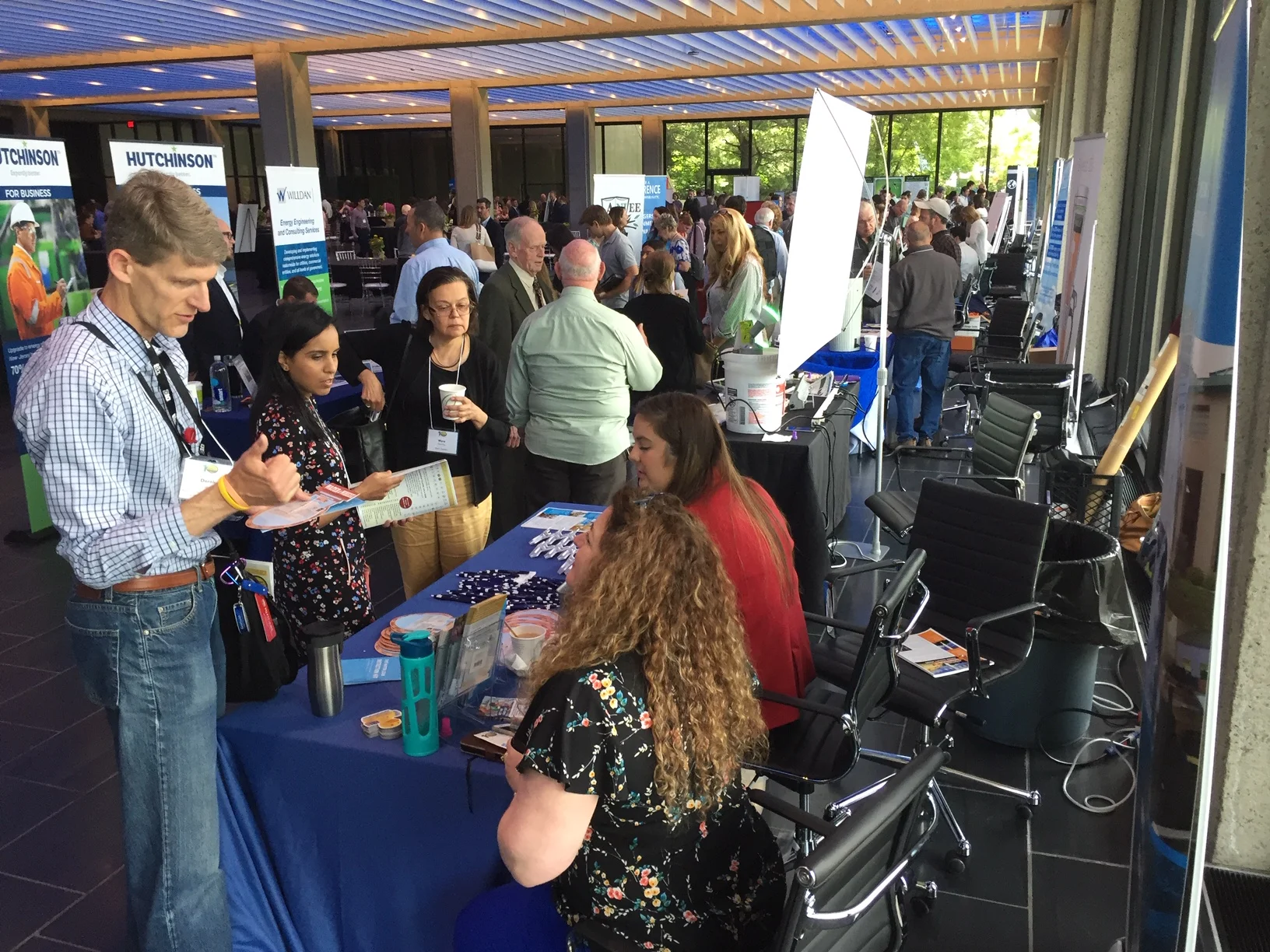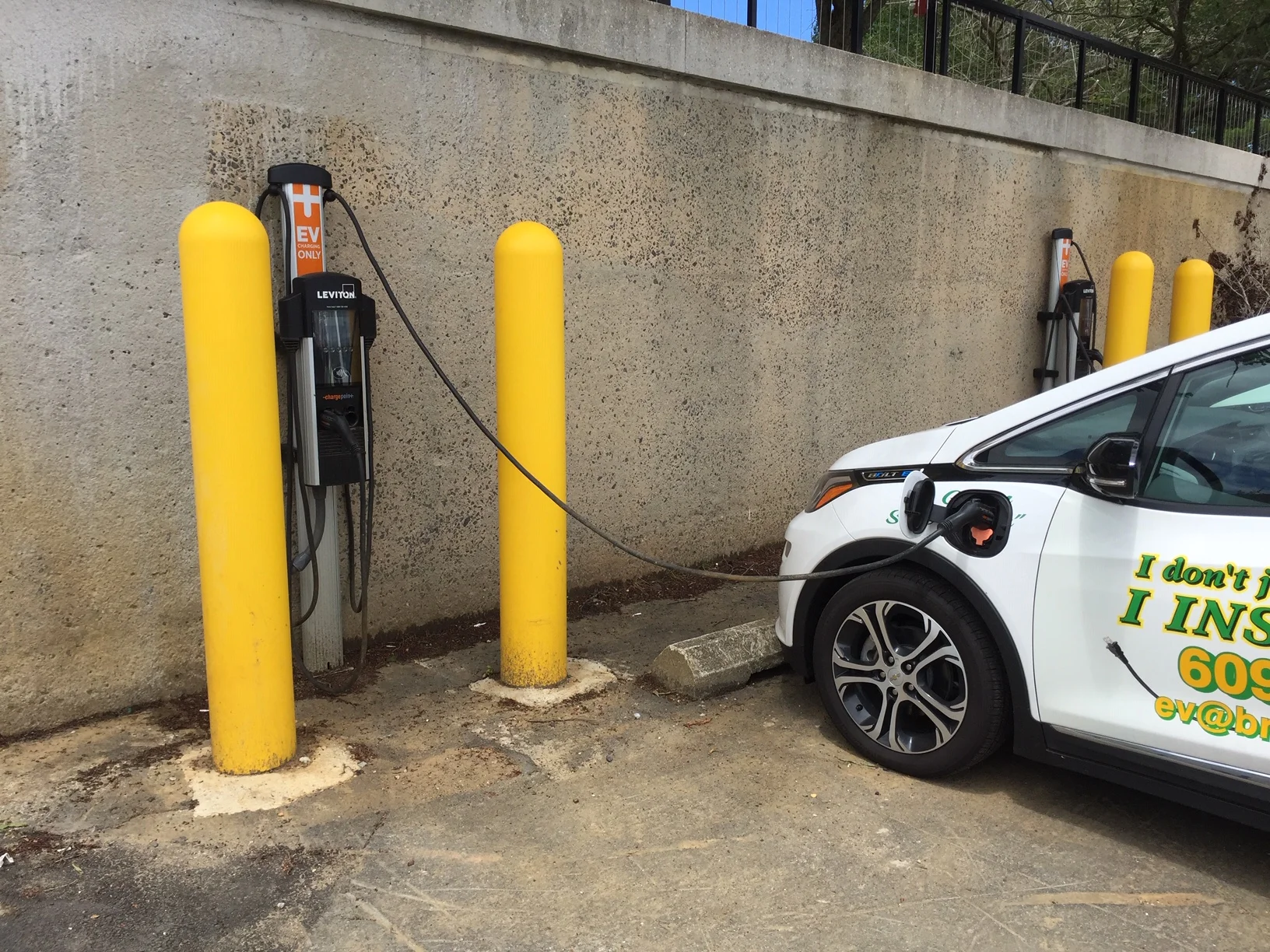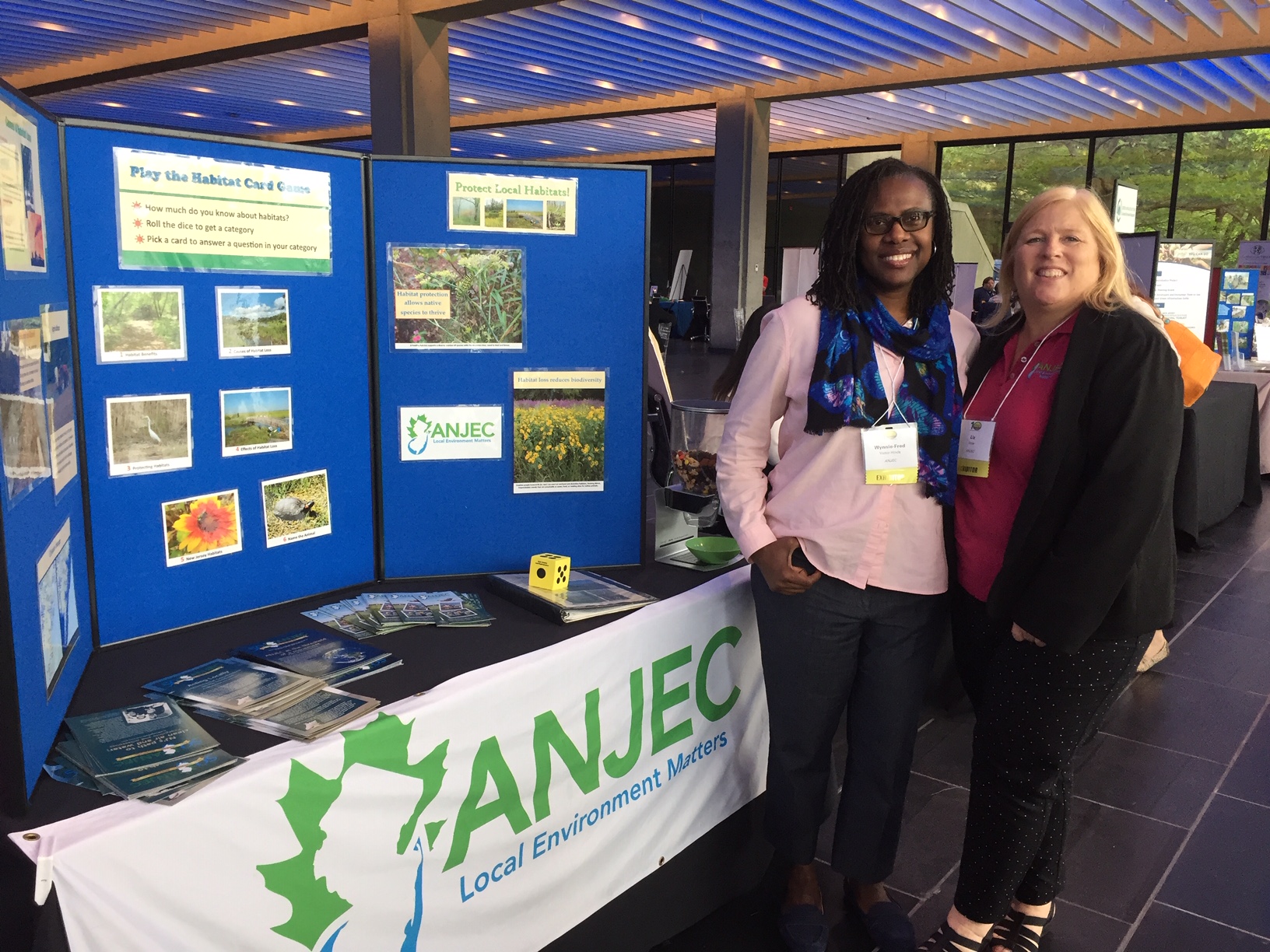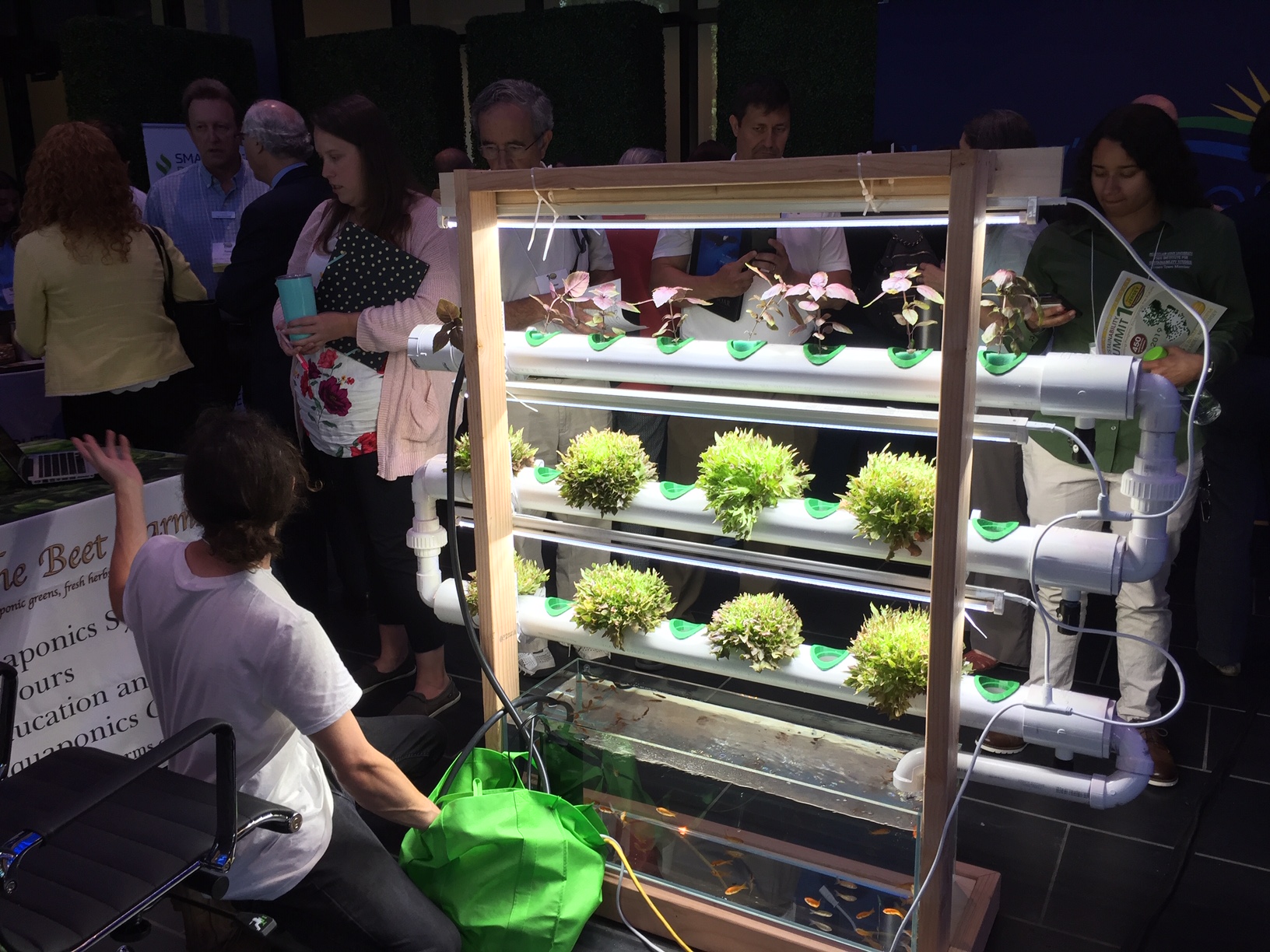Think Globally, Sustain Locally
Sustainable Jersey Director Randall Solomon thanks collaboration partners at 2019 summit
Sustainable Jersey - the feisty nonprofit that spurs environmental action across New Jersey’s towns and schools - marked a bittersweet moment at its annual summit on June 14th in Holmdel: while celebrating ten years of remarkable growth and collaboration, Executive Director Randall Solomon pointed out that by the latest scientific projections, “we have the next ten years to avoid global catastrophe.”
That assessment gave a sense of urgency to the discussions that followed - and there were many. Hundreds of Sustainable Jersey partners convened at the expansive Bell Works complex to map out paths to sustainability for the next decade and beyond. Topics included:
What towns can do; what schools can do; what government can do.
How to achieve clean energy; effective recycling; quality water; public health.
How to finance these solutions; how to get community buy-in; what laws work.
Solomon outlined four primary areas of focus for Sustainable Jersey, which encourages local action through a rigorous certification program that provides guidelines for effective environmental strategies. Towns can vie for Bronze, Silver, and Gold standards in each of these categories:
Energy - Sustainable Jersey has mapped out municipal goals for reducing greenhouse gas emissions, including more efficient building, onsite renewable energy, and fleet management. Only one town - Woodbridge - has achieved Gold Star in Energy.
Waste - Last year saw the collapse of the recycling market. Solomon: “The goal should be not only to increase recycling, but reduce solid waste. We need to do a big rethink on the whole issue of waste.”
Water - Flooding. Polluted runoff. Aging infrastructure. Toxic drinking water in some places. Sustainable Jersey has put together a task force to formulate the Water Gold standards.
Health - Life expectancy in the U.S. actually declined last year, for many reasons. But common sense dictates that improving the environment improves public health. That is the premise of another Gold Star standard now in the works, with help from the Robert Wood Johnson Foundation.
An impressive array of professionals, volunteers, and academics put heads together to address these questions. The CivicStory team attended some of these sessions, and here are our impressions:
The Next 10 Years - (reported by Donna Liu)
In a conversation moderated by Randall Solomon, representatives of the New Jersey Department of Environmental Protection (DEP), Board of Public Utilities (BPU), League of Municipalities, Dodge Foundation and the Glen Rock Borough Council talked about how to build capacity and collaboration at all levels. “We’re back!” declared DEP Deputy Commissioner Debbie Mans to general appreciative laughter, “We believe in climate change. It’s our number one priority.” Mans referred to a recent Eagleton poll on climate change that suggests people think local government should be doing more to mitigate the effects of climate change. At the local level, Arati Kreibich of the Glen Rock Council spoke of implementing renewable energy sources, electric vehicle charging, and pollinations gardens. “What we’ve done really well is talk to our neighbor. None of this was done by a single person, but by collaboration.” The audience was reminded of the release this month of Gov. Phil Murphy’s draft Energy Master Plan, which is now open to public comment.
Spotlight: NJDEP - (reported by Hillary Richard)
The message from the NJ Department of Environmental Protection was that the climate crisis is top priority – both in terms of importance and in terms of DEP state initiatives. In 2015, transportation contributed to 42% of the state’s greenhouse gas emissions. Andrea Friedman, the Supervisor of Electric Vehicle Program, Division of Air Quality, outlined NJ’s plans to promote electric vehicle purchases and usage. She outlined the grants and reimbursement schemes available for both municipalities and citizens who purchase an electric vehicle. Nick Angarone, Bureau Chief, Climate Resilience Planning, outlined what the DEP is doing to address the climate crisis. He brought up the NJ Frames Two Rivers, One Future project aimed at resilience planning during natural disasters and went over the goals of various DEP coastal resilience plans being put in place currently to help citizens get through natural disasters.
Cleaning the (Recycling) Stream - (reported by Donna Liu)
The recycling markets, as CivicStory has reported earlier, are in crisis. The countries we used to send recycled materials to are now rejecting all but the very “cleanest” loads of discarded plastic and paper. At the same time single-stream recycling, while increasing the amount of recycled materials, has led to greater contamination, and more landfill trash. This session focused on re-educating the public to do a better job of sorting trash from treasure. A couple of the presenters extolled the user-friendliness of the Recycle Coach App now in use in their towns. But as Sustainable Jersey’s Vice-Chair Gary Sondermeyer says in the CivicStory podcast of this event, he would like to see “more focus on not producing waste” in the first place.
Sustainability, Equity and Community Transformation - (reported by Hillary Richard)
The idea behind focusing on equity is that every member of a community has value to bring to the sustainability conversation and that individuals can enact change by interacting more effectively with their neighbors than large organizations. Lynn Stoddard, the founder and director of Sustainable CT and the Executive Director at the Institute for Sustainable Energy at Eastern Connecticut State University, discussed the lessons learned from the successful Sustainable CT project. Sustainable CT (which was modeled after Sustainable Jersey) launched in 2017. Within a year, 22 towns were certified as sustainable (13% of the state) and within two years, that number rose to 83 towns (49% of the state). Part of the reason for Sustainable CT’s success was its attention on optimizing equity in order to strengthen municipal processes to become more inclusive, cohesive and representative of all community members. Equity coaches led trainings and Sustainable CT established Equity Toolkits. One of the most successful projects focused on water conservation in Hartford, where local unemployed youths were “hired” by Youth Service Corps and trained on rainwater harvesting and conservation, and then responsible for educating their neighbors face-to-face.
Water Story: The Building Block for the Newest Gold Star Standard in Water - (reported by Donna Liu)
Participants in the Sustainable Jersey certification program pride themselves on doing more than just the minimum when it comes to meeting environmental standards. So the organization’s Water Gold Task Force is working through the requirements that communities must meet to get a Water Gold Star. The beginning of the process is to understand your own town’s “Water Story”, or as panelist Mike Pisuaro of the Watershed Institute explains, “Where do you get your water from? Where does the waste go? The universe of water.” Dr. John Hasse of Rowan University’s School of Earth and Environment then unveiled an online GIS mapping tool, still under development, which will help towns understand their water stories by displaying layers of water-related information such as streams, permeability, etc. The Task Force hopes to unveil the Water Gold standards by next January.
Sustainable Exhibits
In addition to the breakout sessions, the exhibit hall featured a host of Sustainable Jersey partners, including nonprofits (ANJEE, ANJEC and others), vendors (sustainable products, alternative energies), potential funders, schools and sponsors, as well as the chance to test-drive electric vehicles and electric scooters.
Most importantly, the 2019 Sustainable Jersey Summit displayed an array of different visions of what it takes to create a sustainable future.

